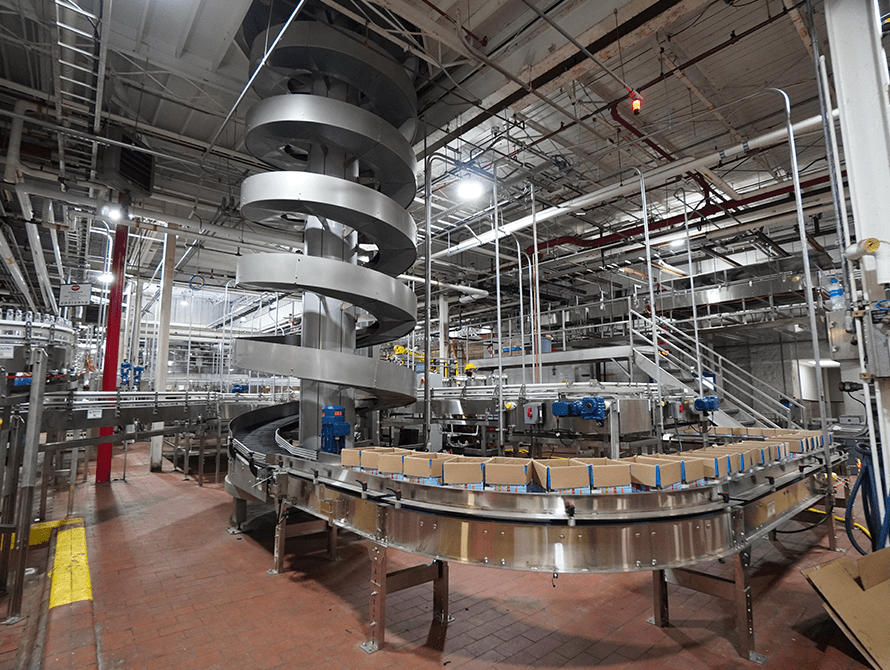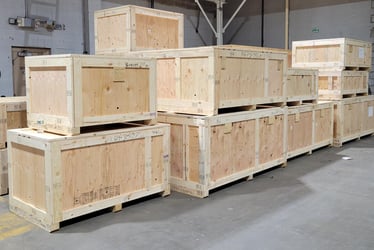If you’re sourcing companies for international shipment, it’s important to select one that is ISPM 15 compliant. You may be reading this and wondering, “Why is this certification so important?" By understanding its significance, you can make informed decisions that ensure smooth and secure transits for your valuable shipments.
Understanding ISPM 15 Certification
ISPM 15 stands for International Standards for Phytosanitary Measures No. 15, a regulation developed by the International Plant Protection Convention (IPPC). This standard was established to prevent the spread of pests and diseases through international trade, specifically focusing on wooden packaging materials.
The Requirements for ISPM 15 Compliance
ISPM 15 sets forth specific requirements that wooden packaging materials must meet to be considered compliant. The key requirement is the treatment of wood through approved phytosanitary measures, such as heat treatment (HT) or fumigation with methyl bromide (MB). These treatments effectively kill pests and their eggs that may be present in the wood, minimizing the risk of introducing harmful organisms to new environments.
Why ISPM 15 Compliance Goes Beyond Heat-Treated Wood
While heat treatment is the most common method used to comply with ISPM 15, the certification extends beyond the treatment process itself. Companies that obtain ISPM 15 certification demonstrate their commitment to adhering to international phytosanitary standards and ensuring the safety and integrity of global supply chains.
The Importance of ISPM 15 Compliance in International Shipments:
-
Preventing the Spread of Pests and Diseases: By adhering to ISPM 15 standards, companies play a vital role in preventing the introduction and spread of pests and diseases that can harm ecosystems, agriculture, and forestry. This certification helps maintain the biosecurity of importing and exporting countries, safeguarding their natural resources.
-
Facilitating Customs Clearance: Many countries have strict regulations regarding the importation of wooden packaging materials. Compliance with ISPM 15 significantly reduces the risk of customs delays or rejections, ensuring a smoother customs clearance process. Non-compliant shipments may be subject to inspections, quarantine, or even rejection, leading to costly disruptions and reputational damage.
-
Enhancing Supply Chain Efficiency: ISPM 15 compliance minimizes the likelihood of disruptions or delays caused by customs issues or non-compliant packaging materials. By partnering with ISPM 15 compliant companies, you can streamline your supply chain operations and maintain reliable and efficient international shipments.
-
Upholding Environmental Responsibility: ISPM 15 compliance promotes sustainable practices in the packaging industry. By using treated wooden pallets or alternative packaging materials, companies reduce the demand for new wood resources and contribute to responsible resource management. This certification aligns with global efforts to mitigate deforestation and support environmentally friendly practices.
When sourcing crating companies for international shipments, selecting an ISPM 15-compliant provider is key to a seamless shipping process. Compliance with this certification ensures adherence to internationally recognized phytosanitary standards, prevents the spread of pests and diseases, facilitates customs clearance, enhances supply chain efficiency, and upholds environmental responsibility. By understanding the importance of ISPM 15 compliance and partnering with compliant companies, you can ensure the smooth and secure transit of your shipments, protecting both your assets and the global ecosystem.
In the following video, we discuss the requirements for an ISPM 15 certification and why this mark of compliance goes beyond heat-treated wood.







